Save on Summer Energy Bills with These Smart Tips - NEC Coop
Jul 18, 2024 — Energy Efficiency, Resources

Summertime is great for fun in the sun, but it can also lead to higher electricity bills. Wondering why your energy costs spike during the hottest months? You’re not alone. Let’s discuss the reasons behind these spikes and explore some energy-saving tips for summer to help you manage your electricity expenses this season.
Increased Use of Air Conditioning
One of the main reasons for higher electricity bills in the summer is the increased use of air conditioning. Our air conditioners work harder and run longer to keep our homes cool and comfortable as temperatures rise. This constant usage consumes a lot of electricity.
Tip: To reduce the load on your air conditioner, consider using fans to circulate air and keep your home cooler. Additionally, setting your thermostat a few degrees higher when you’re not at home can lead to significant savings.
Longer Days, More Energy Usage
Summer days are longer, and with more daylight, you might use more energy throughout the day. Extended daylight hours often lead to more time spent at home, especially for families with children on summer break. Cooking more meals at home, running more loads of laundry, and using entertainment devices like TVs and gaming consoles for longer periods all contribute to higher energy consumption.
Tip: Make use of energy-efficient appliances and light bulbs. Also, try to limit the use of high-energy appliances during peak hours when electricity demand and rates are higher.
Humidity and Cooling Efficiency
High humidity levels can make your air conditioner work even harder. When the air is humid, your AC uses extra energy to remove moisture and cool the air, which requires more energy.
Tip: Use a dehumidifier to help reduce the humidity levels in your home. This can make your AC more efficient and lower your energy usage. Also, ensure your AC filters are clean and replace them regularly to maintain optimal performance.
Inefficient Windows and Insulation
If your home isn’t well-insulated or has old, drafty windows, cool air can easily escape, and hot air can seep in. This makes your air conditioner work overtime to maintain a comfortable temperature. Homes with single-pane windows or insufficient attic insulation are particularly prone to energy loss.
Tip: Upgrade to energy-efficient windows and improve insulation in your attic and walls. This initial investment can lead to substantial long-term savings on your energy bills.
Energy Vampires
Energy vampires are devices that consume electricity even when they’re not in use. Common culprits include phone chargers, standby appliances, and other electronics left plugged in.
Tip: Unplug devices when not in use or use power strips to easily switch off multiple devices. Consider investing in smart power strips that automatically cut off power to devices when they’re not needed.
Outdoor Activities and Cooling
Summer often means more outdoor activities, which can lead to increased use of outdoor lights, pool pumps, and other equipment.
Tip: Set your pool pump to run during off-peak hours and limit its running time. Use solar-powered outdoor lights where possible, and consider manual alternatives like charcoal grills instead of electric ones.
Tips to Lower Your Summer Electricity Bill
- Regular maintenance – Keep your air conditioning system well-maintained. Clean or replace filters monthly and have a professional check-up at the start of the season.
- Smart thermostats – Install a smart thermostat to better manage your home’s temperature. These devices can learn your schedule and adjust settings automatically to save energy.
- Shade and ventilation – Use blinds or curtains to block out the sun during the hottest parts of the day. Proper ventilation can also help reduce the need for air conditioning.
- Seal leaks – Check for and seal any leaks around doors and windows to keep cool air in and hot air out.
- Energy audits – Consider having an energy audit conducted to identify areas where you can improve efficiency. Many utility companies offer this service for free or at a low cost.
- Ceiling fans – Use ceiling fans to help circulate air and make rooms feel cooler. This can allow you to raise your thermostat by a few degrees without sacrificing comfort.
- Plant trees or install awnings – Planting trees or installing awnings around your home can provide shade and reduce the amount of direct sunlight entering your house, which can significantly lower cooling costs.
- Use a programmable timer for pool pumps – Instead of running your pool pump continuously, use a programmable timer to run it only during necessary hours, preferably during off-peak times.
- Cook outside – Using your stove or oven can heat up your home, making your air conditioner work harder. Consider cooking outside on a grill to keep the heat out of your house.
- Upgrade to energy-efficient appliances – If your appliances are outdated, they might be consuming more energy than necessary. Upgrading to energy-efficient models can reduce your electricity consumption and lower your bills.
- Adjust your water heater – Set your water heater to a lower temperature, ideally around 120 degrees Fahrenheit. This can save energy and reduce your overall electricity use.
- Dry clothes naturally – Instead of using a dryer, take advantage of the summer sun and dry your clothes outside. This not only saves energy but also gives your clothes a fresh, natural scent.
- Insulate your attic – Proper attic insulation can prevent cool air from escaping and keep hot air from entering your home, reducing the workload on your air conditioner.
Understanding why your electricity bill is higher this season is the first step toward managing and reducing it. By implementing these energy-saving tips for summer and being mindful of your energy usage, you can enjoy the summer months without the shock of an inflated electricity bill. Remember, small changes can make a big difference, and every bit of effort helps in keeping your home comfortable and your bills manageable.
Sources:
- “Spring and Summer Energy-Saving Tips,” U.S. Department of Energy
- “Go Green, Save Green: A Look Into How Smart Thermostats Save You Money,” NEC Co-op Energy
- “Home Energy Audit: Your Questions Answered,” NEC Co-op Energy
- “Energy Efficient Products,” U.S. Department of Energy
- “Do-It-Yourself Savings Project: Lower Water Heating Temperature,” U.S. Department of Energy
- “How to lower your pool energy costs,” SRP
- “Beware of Energy Vampires: 10 Energy-Saving Tips from Facilities,” Columbia University Irving Medical Center
- “Why Energy Efficiency Matters,” U.S. Department of Energy
- “How To Save Electricity of Aircon for Cutting Costs,” TCL

